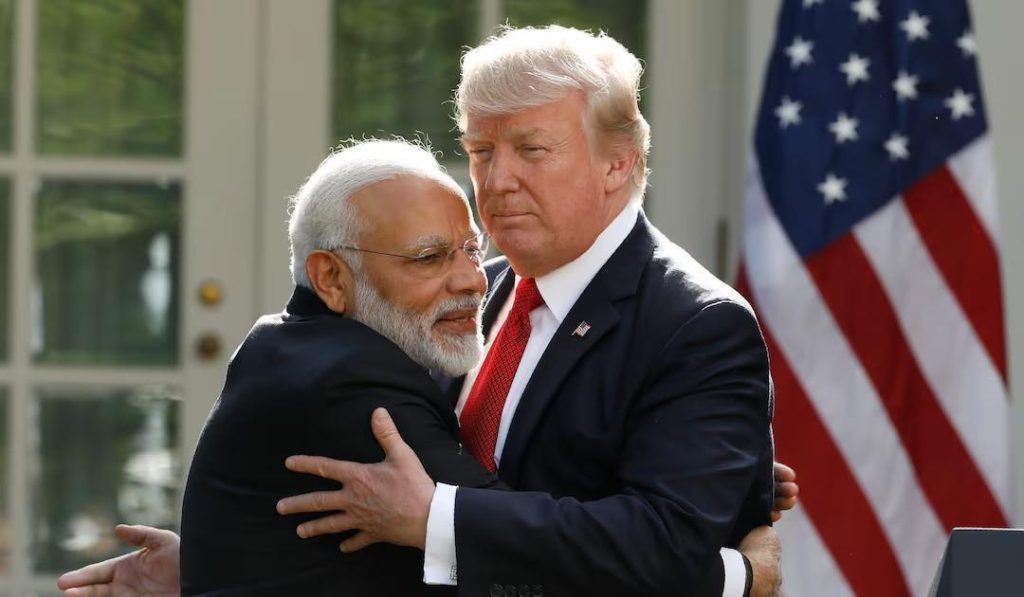
Why is India not planning to retaliate against Trump’s tariffs?
In a move that has raised eyebrows globally, India has reportedly decided not to retaliate against the tariffs imposed by US President Donald Trump on certain Indian goods. Despite the tariffs, which were imposed in June 2020, India’s Prime Minister Narendra Modi administration has opted to focus on trade talks with the US, rather than taking a retaliatory stance. But why has India chosen to take this approach, and what does it mean for the future of India-US trade relations?
According to sources cited in a recent Reuters article, India has been exploring a clause in Trump’s order that offers a possible reprieve for trading partners who “take significant steps to remedy non-reciprocal trade arrangements”. This clause, known as the “Section 301” clause, allows the US to impose tariffs on imported goods if it is deemed that those goods are not being sold in the US market at a fair price. India has been working closely with the US to address these concerns and has made significant progress in recent months.
Another key factor behind India’s decision not to retaliate is its desire to be among the first nations to initiate trade talks with the US. As one Indian official told Reuters, “We see an advantage in being among the first nations to initiate trade talks with the US.” This approach is seen as a way for India to demonstrate its commitment to a robust and growing trade relationship with the US, rather than engaging in a tit-for-tat tariff war.
So, what does this mean for India-US trade relations? For one, it suggests that India is willing to put aside its differences with the US and focus on finding a mutually beneficial solution. This is a significant shift from the rhetoric that has dominated the relationship in recent years, with both sides engaging in a heated trade war that has seen tariffs imposed on billions of dollars’ worth of goods.
The decision not to retaliate also reflects India’s recognition of the potential benefits of a strong trade relationship with the US. The two countries have a significant trade relationship, with the US being India’s second-largest trading partner. In 2020, the US-India trade relationship was valued at over $80 billion, with India being a key market for US goods such as aircraft, software, and pharmaceuticals.
Moreover, the US is also a key market for India’s IT and IT-enabled services (ITeS) sector, which is one of the country’s fastest-growing industries. India’s IT industry, which includes companies such as Tata Consultancy Services (TCS), Infosys, and Wipro, has been a key driver of the country’s economic growth in recent years. The US market is a critical component of this industry, and India’s decision not to retaliate will help to maintain the flow of goods and services between the two countries.
Of course, not everyone is pleased with India’s decision not to retaliate. Some have criticized the move, arguing that it is a sign of weakness and that India should be more assertive in its dealings with the US. However, it is worth noting that India’s decision is not without its challenges. The country’s economy has been facing significant headwinds in recent years, including a slowing down of its growth rate and a high current account deficit.
In this context, India’s decision to focus on trade talks with the US makes sense. By engaging with the US and seeking to address its concerns, India is hoping to unlock new opportunities for trade and investment. This approach is also seen as a way for India to diversify its trade relationships and reduce its dependence on any one market.
In conclusion, India’s decision not to retaliate against Trump’s tariffs is a significant development in the country’s trade relations with the US. While some may see it as a sign of weakness, it is actually a savvy move that reflects India’s recognition of the potential benefits of a strong trade relationship with the US. By engaging with the US and seeking to address its concerns, India is hoping to unlock new opportunities for trade and investment, and to diversify its trade relationships. As the global economy continues to evolve, India’s decision not to retaliate will be seen as a key factor in shaping the future of India-US trade relations.
Source:






